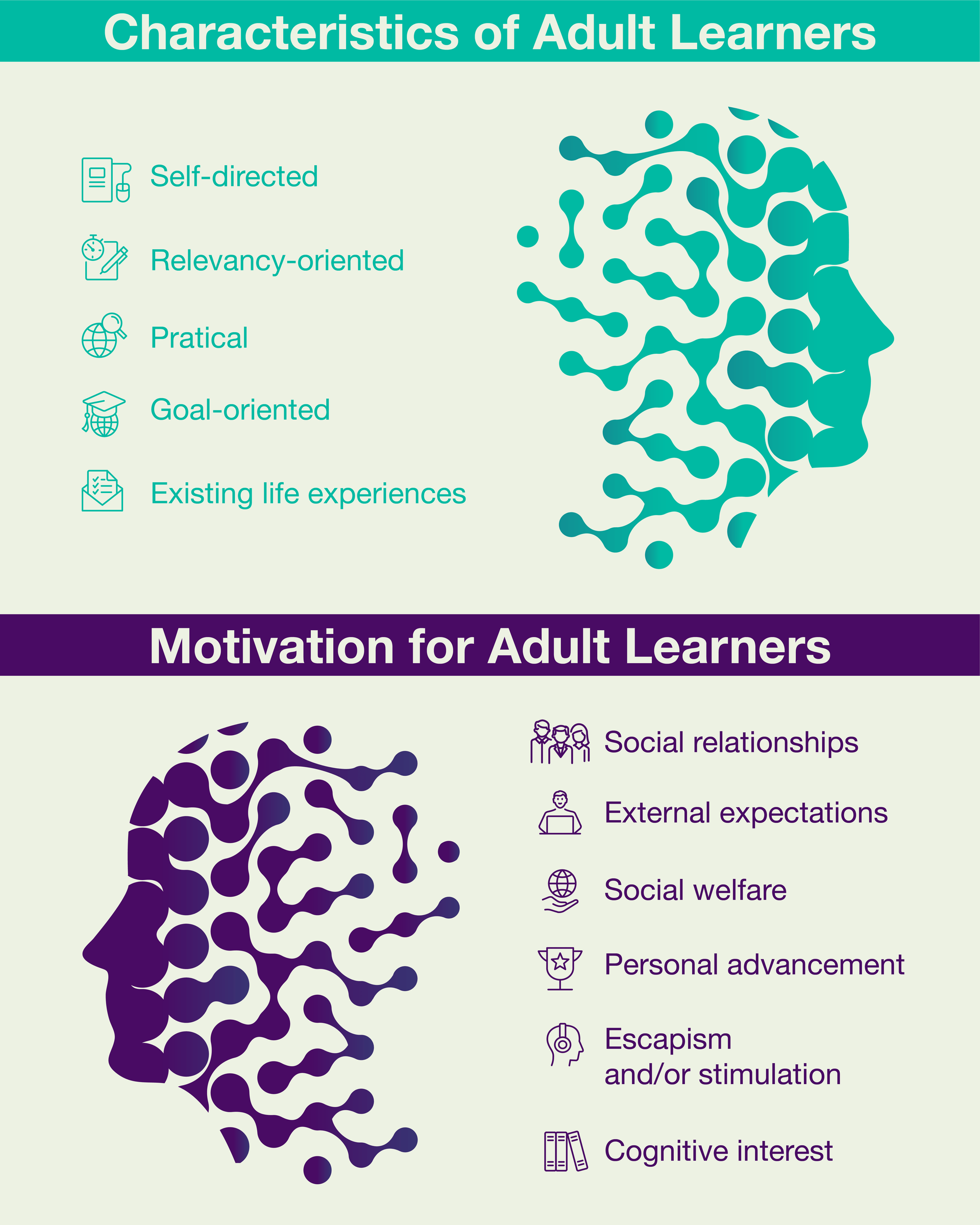There are many reasons adult learners may want, or need to pursue additional learning. Perhaps they want to acquire a skill, seek higher education, or expand their knowledge in a particular field. When we think of a learning in a traditional sense, our mind likely goes to youth in a traditional classroom setting. But learning doesn’t stop post-graduation, and doesn’t only happen in a traditional school environment. More importantly, children and adults are very different when it comes to how they learn, so different techniques must be used in order to make learning effective for adults.
In 1968, American educator Malcolm Knowles shared a theory that distinguished adult learning from childhood learning. The below infographic showcases both the Characteristics of Adult Learners, and the Motivation behind Adult Learning.
Characteristics of Adult Learners
- Self-directed: the instructor must actively involve the learner in the learning process and serve as facilitators rather than fact generators; instructors must get participants’ perspectives on the topics to cover and let them work on projects that reflect their interests
- Relevancy-oriented: learning should be applicable to their work or other responsibilities to be of value to them
- Practical: adults may not be interested in knowledge for knowledge’s sake but rather focus on what is most useful to them
- Goal-oriented: adult learners appreciate an educational program that is organized and has clearly defined elements
- Existing life experiences: instructors need to connect learning to a learner’s foundation by encouraging participants to share relevant experience/knowledge
Motivation for Adult Learning
- Social relationships: to make new connections and network
- External expectations: to comply with instructions from another; to fulfill the expectations or recommendations of someone with authority
- Social welfare: to improve ability to serve their community and improve ability to participate in community work
- Personal advancement: expanding skills and deepening knowledge to secure professional advancement
- Escapism and/or stimulation: to change the pace, stimulate the senses or provide a break in routine
- Cognitive interest: to learn for the sake of learning, and to satisfy an inquiring mind
Contact us to learn how we apply adult learning principles when developing interactive content.




